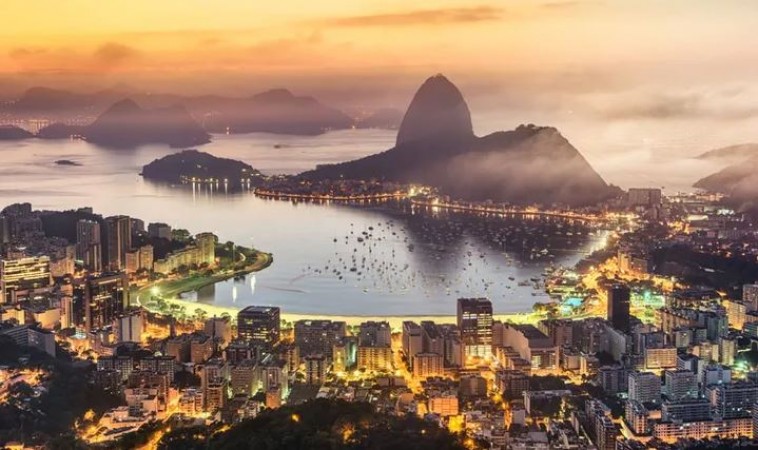
When discussing the geographical expanse of nations across the globe, certain countries stand out for their vast territories. Here, we delve into the ten largest countries by land area, highlighting their unique features and contributions to global geography.
Russia
Russia holds the title as the largest country globally, straddling both Europe and Asia. With a staggering land area of approximately 17,125,000 square kilometers, Russia spans diverse landscapes from tundra in the north to vast forests and steppe in the south. Moscow, its capital city, is a cultural and political hub of significance not only within Russia but also internationally.
Canada
Canada, situated in North America, boasts the second-largest land area in the world, covering about 9,984,670 square kilometers. Known for its pristine natural beauty and abundant natural resources, Canada is home to a diverse population and is recognized globally for its commitment to environmental conservation. Ottawa serves as its capital, while Toronto and Vancouver are major centers of economic activity.
China
China, located in East Asia, ranks third among the largest countries by land area, spanning approximately 9,572,900 square kilometers. Beyond its vast territorial expanse, China is renowned for its rich history, cultural heritage, and rapid economic growth. Beijing, the capital, is a bustling metropolis that blends ancient traditions with modern advancements.
United States
The United States, a dominant force in economic, military, and technological spheres, is the fourth-largest country globally by land area, covering 9,525,067 square kilometers. This vast nation encompasses diverse landscapes ranging from the sweeping plains of the Midwest to the towering peaks of the Rocky Mountains and the deserts of the Southwest. Washington, D.C., the capital city, stands as a symbol of American governance and democracy.
Brazil
Brazil, located in South America, is the largest country on the continent and the fifth-largest in the world, with a land area of 8,515,767 square kilometers. Known for its Amazon rainforest, vibrant culture, and thriving cities like Brasília (the capital), São Paulo, and Rio de Janeiro, Brazil holds significant influence in global environmental and cultural spheres.
Australia
Australia stands out as both a country and a continent, situated in Oceania with a land area of 7,692,202 square kilometers. Known for its unique wildlife, expansive Outback, and coastal cities, Australia's capital city, Canberra, symbolizes its political and administrative center alongside Sydney and Melbourne, which are hubs of commerce and culture.
India
India, located in South Asia, is one of the world's largest countries by land area, covering approximately 3,166,391 square kilometers. Known for its diverse cultures, languages, and landscapes ranging from the Himalayas in the north to the tropical shores of the south, India plays a crucial role in global economics and cultural exchange. New Delhi, the capital city, is a bustling metropolis that reflects India's rich history and rapid modernization.
Argentina
Argentina, positioned in South America, covers a land area of 2,780,400 square kilometers, making it the eighth-largest country globally. Buenos Aires, its capital city known for its European-style architecture and vibrant culture, serves as a gateway to Argentina's diverse landscapes, including the Andes mountains, fertile plains of the Pampas, and the expansive Patagonian region.
Kazakhstan
Kazakhstan, located in Central Asia, is the ninth-largest country globally by land area, spanning approximately 2,724,900 square kilometers. Astana (now Nur-Sultan), the capital city, represents Kazakhstan's ambitious modernization efforts, contrasting with its vast steppes, deserts, and mountain ranges. Kazakhstan is known for its rich cultural heritage and strategic geopolitical position.
Algeria
Algeria, the largest country in Africa by land area, covers about 2,381,741 square kilometers. Algiers, its capital city overlooking the Mediterranean Sea, is renowned for its French colonial architecture and vibrant markets. Algeria's diverse landscapes include the Sahara Desert, mountainous regions, and Mediterranean coastline, contributing to its significance in both African and global contexts.
These ten countries not only showcase the vast diversity of geographical landscapes on Earth but also underscore their cultural, economic, and political contributions to the global community. Understanding their expansive territories provides insights into their roles in shaping regional and international affairs, making them pivotal players in the interconnected world of today.
Thane Court Sentences Man to 10 Years for Sexual Assault on Minor
Vanessa Hudgens Welcomes First Child with Cole Tucker on His Birthday